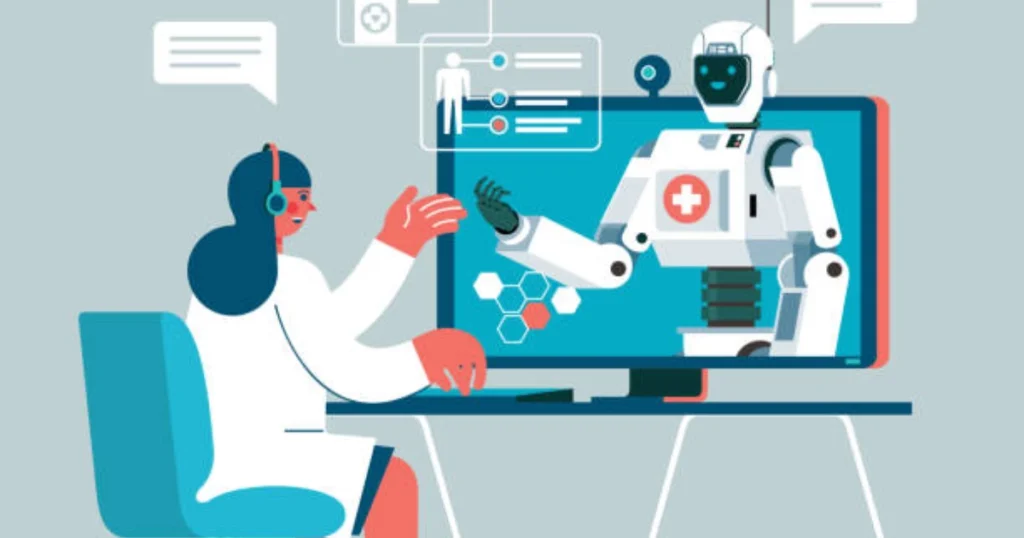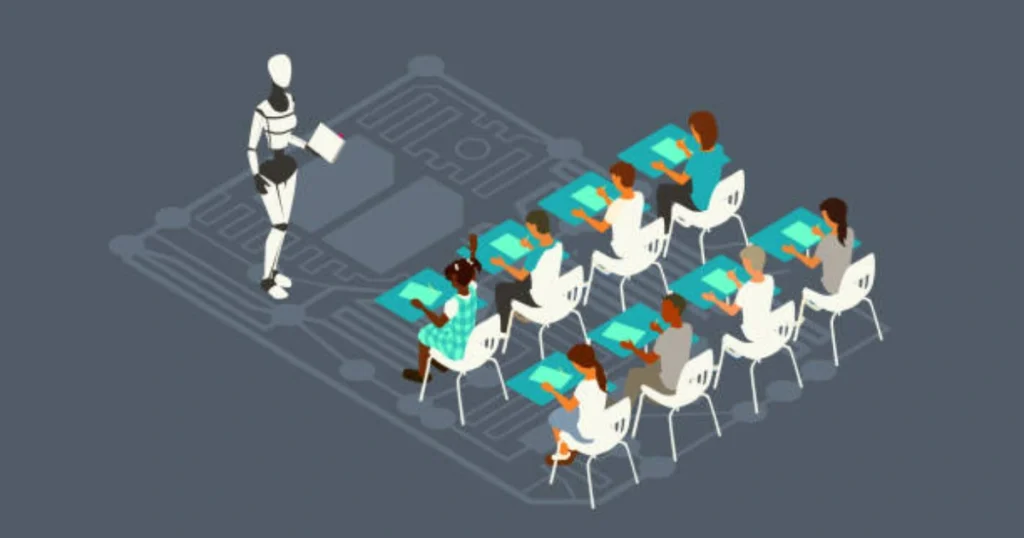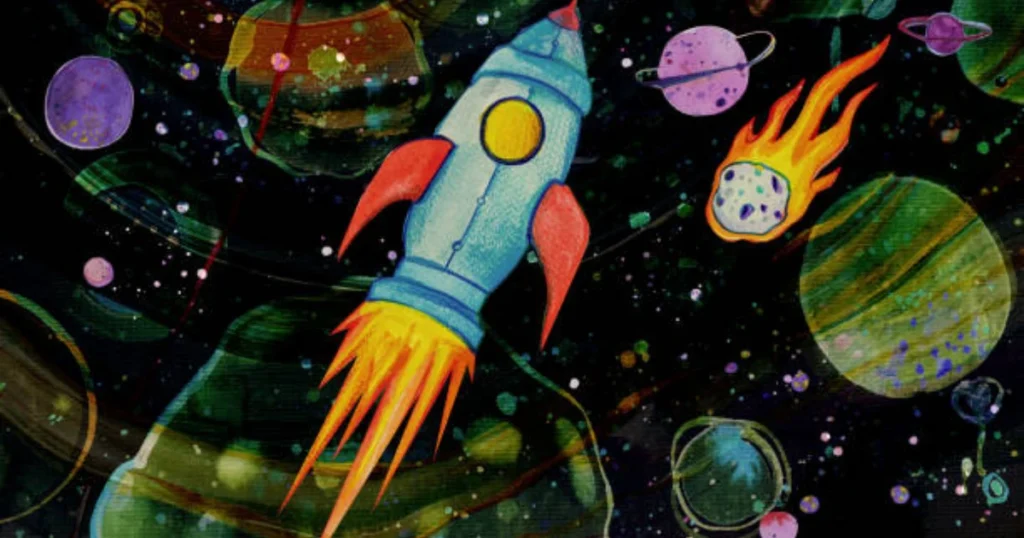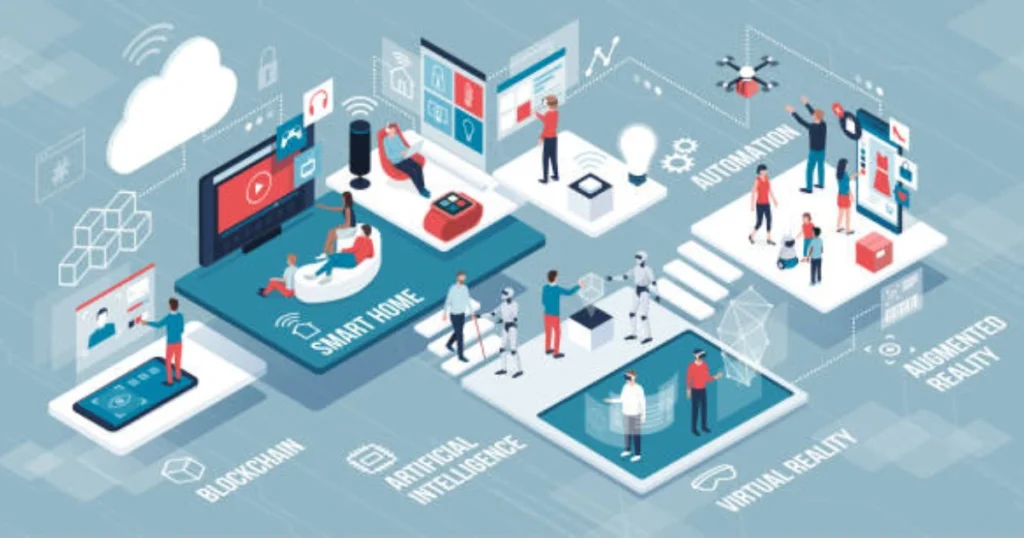Imagine waking up to a morning where your coffee machine brews your favorite blend and does so based on insights from your sleep patterns, your health data, and even your calendar’s day ahead. This isn’t a scene from a sci-fi novel but a glimpse into the role of AI in tomorrow’s world – a world where technology doesn’t just assist but anticipates our needs, redefines industries, and challenges our very notions of work, ethics, and humanity.

The Dawn of AI in Healthcare
Healthcare is one sector where AI’s role in tomorrow’s world is set to be revolutionary. AI’s integration into medicine is not just about automating tasks; it’s about enhancing human capabilities to diagnose, treat, and manage health in ways previously unimaginable.
- Predictive Diagnostics: AI algorithms can sift through vast datasets – from genetic information to lifestyle choices – to predict health risks with startling accuracy. For instance, AI can forecast the likelihood of a patient developing heart disease, allowing for preventive measures before symptoms even manifest.
- Personalized Medicine: With AI, treatments can be tailored to the individual, considering genetic makeup, environmental factors, and even social behaviors. This means medications could be designed to be more effective for you, reducing side effects and enhancing recovery.
- Surgical Precision: Robotic surgery, guided by AI, promises precision beyond human capability, reducing recovery time and surgical complications. The future might see AI assistants in the operating room, learning from each procedure to improve outcomes continuously.
But with these advancements come challenges. Data privacy, the digital divide in healthcare access, and the ethical implications of AI decision-making in life-or-death scenarios are all part of the conversation about AI’s role in tomorrow’s world.
AI in Communication: A Double-Edged Sword
AI is dramatically reshaping the landscape of communication. With capabilities like instant translation and personalized content delivery, it’s breaking down barriers and enhancing user engagement like never before.
- Instant Translation: AI breaks down language barriers, enabling real-time communication across different languages.
- Personalized Content: Algorithms tailor information to individual preferences, enhancing user engagement.
- Automated Assistance: Chatbots and virtual assistants manage communications, providing instant responses and scheduling.
However, this transformation isn’t without its hurdles. The reliance on AI for communication introduces challenges such as privacy concerns due to data collection, the risk of digital burnout from constant connectivity, and the potential to widen the digital divide where not all have equal access to these advancements.

Revolutionizing Education
Education stands to gain immensely from AI’s role in tomorrow’s world. AI isn’t here to replace teachers but to augment their capabilities and personalize learning in unprecedented ways.
- Adaptive Learning: AI can analyze how a student learns best, adjusting the pace, content, and style of education to match individual needs. This could mean a student struggling with a concept receives immediate, tailored explanations, while another student explores advanced topics at their own speed.
- Lifelong Learning Platforms: AI can facilitate continuous education, providing resources for skill acquisition that are relevant to the ever-changing job market. Imagine a world where your education never stops, adapting to your career trajectory or personal interests.
- Virtual and Augmented Reality: These technologies, powered by AI, could transport students to any point in history or any environment for study, making learning an immersive experience. This not only makes education more engaging but also more inclusive for diverse learning styles.
However, integrating AI in education must address issues like the digital divide, ensuring that technology doesn’t widen the gap between different socio-economic groups.

The Role of AI in Space Exploration
The role of AI in space exploration is nothing short of revolutionary, pushing the boundaries of what’s possible beyond Earth. From autonomous spacecraft navigation to real-time data analysis, AI is integral to the success and safety of space missions. It’s not just about exploring; AI is key to making human settlements on other worlds a feasible reality.
- Autonomous Navigation: AI allows spacecraft to maneuver without human control, crucial for docking and planetary landings.
- Data Analysis: AI rapidly processes vast amounts of mission data, spotting trends or anomalies for immediate scientific insights.
- Safety Enhancements: Predictive AI helps prevent mission failures by forecasting potential issues.
- Life Support Optimization: AI manages resources on long missions, enhancing efficiency in recycling systems.
- Advanced Robotics: AI empowers robots for autonomous tasks in space, from repairs to exploration.
- Innovation Spillover: Space AI technology benefits Earth in areas like climate monitoring and agriculture.
- Human Spaceflight Vision: AI supports planning for sustainable human habitats in space.
Despite its promise, AI in space exploration faces challenges including ensuring reliability in harsh space conditions, managing vast data loads with limited power, and dealing with significant communication delays that necessitate robust autonomous decision-making capabilities.
The Economic Landscape: Jobs and Automation
The economic implications of AI’s role in tomorrow’s world are profound, with automation at the heart of the debate. While AI can automate routine tasks, leading to efficiency, there’s a real concern about job displacement.
- Job Creation vs. Job Displacement: AI is likely to create new job categories, particularly in AI development, ethics, and system oversight. However, there’s a need for a proactive approach to reskill workers for these new roles. The challenge is to pivot from jobs that AI can perform to roles where human creativity, empathy, and judgment are irreplaceable.
- Economic Growth: On the flip side, AI can drive economic growth by enhancing industry productivity. AI can optimize operations, reduce waste, and open new markets from manufacturing to service sectors.
- Policy and Education: Governments and educational institutions must collaborate to prepare the workforce for this transition. This involves technical training and fostering skills like critical thinking, which AI cannot replicate.

AI in Daily Life: Enhancing Human Experience
In the realm of personal life, the role of AI in tomorrow’s world is set to be that of a companion, making daily routines more efficient and personalized.
- Smart Homes: Imagine homes that adapt to your mood, health, or the weather, adjusting lighting,temperature, and even suggesting activities based on your preferences.
- Health and Fitness: AI can act as a personal coach, monitoring your physical activity, diet, and even mental health, offering real-time advice or connecting you with professionals when needed.
- Entertainment and Leisure: From recommending the next binge-worthy series to creating music based on your mood, AI can enhance our leisure time in ways that feel personal and intuitive.
However, this integration also poses questions about over-reliance on technology and the erosion of traditional skills or human interaction.
AI as an Environmental Guardian
Lastly, the role of AI in tomorrow’s world extends to environmental protection. AI can be a powerful ally in addressing climate change and sustainability:
- Climate Modelling: AI can analyze climate data to predict environmental changes with greater accuracy, aiding in better policy-making for mitigation and adaptation.
- Resource Management: From optimizing energy use in smart cities to managing water resources, AI can help make our consumption patterns more sustainable.
- Conservation: AI can monitor wildlife, predict poaching activities, and even help in reforestation projects by analyzing data to understand ecosystem needs better.
AI and Emerging Technologies: The Next Frontiers
Beyond immediate applications, AI intersects with cutting-edge technologies:
- Quantum Computing: AI can help in managing and processing the vast amounts of data quantum computers will produce, potentially revolutionizing fields like cryptography, drug discovery, and climate modeling.
- Blockchain: AI could enhance blockchain’s security and efficiency, transforming sectors from finance to healthcare.
- AR/VR: AI-driven AR/VR could change how we learn, work, and play, offering personalized experiences that adapt to user behavior.
Each of these technologies brings its own set of challenges, from the ethical implications of AI in quantum computing to the environmental impact of AI’s energy consumption.
Ethical AI: Navigating the Moral Maze
As AI becomes more integrated into our lives, its role in tomorrow’s world must be guided by ethical considerations.
- Bias and Fairness: AI systems can perpetuate or even amplify societal biases if not carefully monitored. Ensuring AI algorithms are fair and unbiased is a continuous challenge that involves diverse data sets and transparent practices.
- Privacy: With AI’s ability to analyze personal data, privacy concerns are paramount. The future demands robust data protection laws and AI systems designed with privacy by default.
- Autonomy and Decision-Making: As AI makes decisions that affect human lives, who is accountable when things go wrong? The governance of AI must include mechanisms for accountability and ethical oversight.
- Military AI: The use of AI in warfare poses profound ethical questions. The development of autonomous weapons systems, for instance, raises debates about the morality of machines making life-or-death decisions.
Conclusion
The narrative of the role of AI in tomorrow’s world is not just about technological advancement but about shaping a future where AI serves humanity’s higher purposes. As we stand on the brink of this new era, the conversation isn’t just about what AI can do, but how we can ensure it does so with our values intact.
This requires a global effort – from tech developers ensuring ethical AI design to policymakers creating frameworks for AI governance, educators preparing the next generation, and each of us being mindful consumers and advocates for technology that respects human dignity and the planet’s health.
In navigating this future, we must remember that AI is a tool crafted by human hands for human ends. Our collective challenge is to wield this tool wisely, ensuring that AI’s role in tomorrow’s world enhances our lives, preserves our values, and protects our planet.
Disclaimer
The information presented in this blog post on “The Role of AI in Tomorrow’s World” is based on current trends, research, and speculative insights into the future of artificial intelligence. The views expressed are those of the author and do not necessarily reflect the future state of technology. Developments in AI are subject to change due to technological advancements, policy changes, and unforeseen challenges. Therefore, readers should consider this article as an exploration of potential scenarios rather than a definitive prediction. Always consult with experts and reference the latest research for the most current and accurate information.
